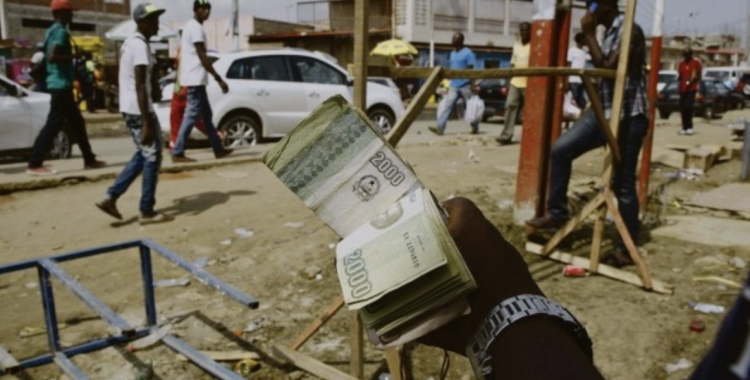According to the consultant to the management of the Angolan Banking Association (Abanc), Ondjoy de Barros, it is not commercial banks that supply the currency that circulates in the informal market, which must be subject to supervision due to the amounts transacted there.
"Today this market is huge, we even have currency entering across borders and much of this trade that is carried out is not registered and must be registered and supervised, but we still don't understand its size", said the person in charge, in an interview to Lusa.
Speaking about the scarcity of currency in the Angolan market, a concern expressed by citizens, businesspeople and even "kinguilas", the Abanc consultant said that the informal market operates even in periods of some exchange rate stability in the official circuit.
"What happens is that when there was greater availability of currency there weren't as many complaints (...) there was more stability, but we already had an informal market circulating", he recalled.
"I think it's not a question of banks channeling (currency into the informal market). I think it has to do with how activities should be formalized in the informal market and see how there is a constant supply of currency in that market", he maintained.
Ondjoy de Barros also considered that the trade that takes place in Angola's border areas and even fuel smuggling in these regions "can generate foreign currency", insisting on the need for greater supervision by the authorities.
"I think that it is not formal banking that supplies (money) to the informal system, mainly because it is one of the most regulated sectors of the economy. We have international rules and regulations that must be followed and there is this rigor at the level of banks", assured the representative from Abanc.
The buying and selling of currency in the parallel market is a business that has been going on for decades in Angola, practiced by women and men, who are normally found in the vicinity of banking institutions, places where, allegedly, a large part of the amounts transacted by "kinguilas" originate.
The scarcity of currency in Angola is also felt in the informal market where foreign currency is transacted, say the "kinguilas" of Luanda, who complain about the lack of customers and see loans as an alternative source of income.
Some "kinguilas", as the women and men in Angola who sell and buy currency in the informal market are known, told Lusa that they were having difficulty exchanging or buying a 100 dollar or 100 euro note every day.
With a lack of customers, contrary to what happened in the past when the income from this activity allowed them to build a residence, the "kinguilas" are looking for other alternatives, selling telephone top-ups and mineral water, or turning to loans.







